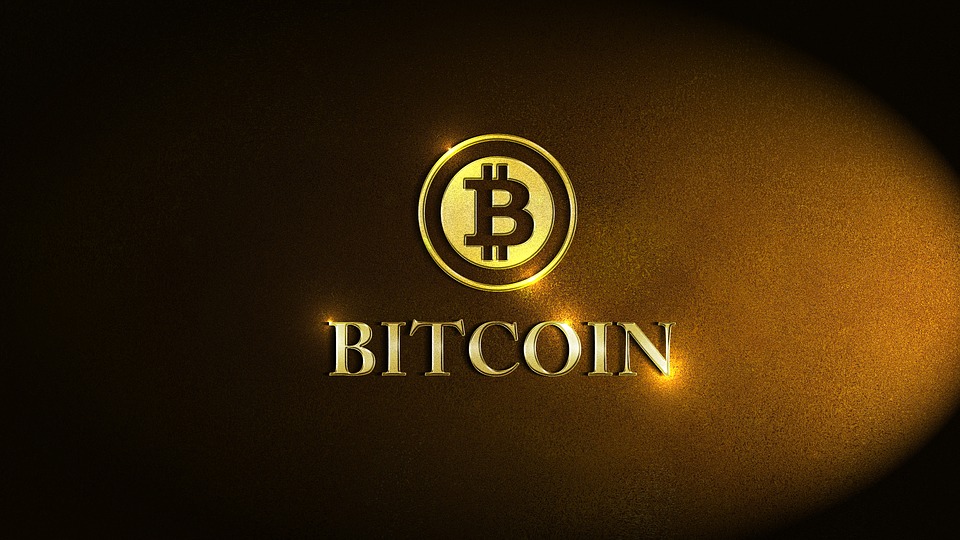If you have been looking into the new craze of Cryptocurrencies. Then you must have heard the term Blockchain used. If you are newer to Cryptocurrencies then you might not really know what is Blockchain is all about. I hope by the time you are done reading this you will have a better understanding of it. And if you are going to get into these Cryptocurrencies keep in mind you are going to need a compliant token wallet. I suggest you use one from Ominex they have all the wallet solutions you will need.
What is Blockchain Technology?
So what is Blockchain? The blockchain is the elemental technology that is behind the new cryptocurrencies that have recently emerged on the market. Perhaps the most widely known and used is the Bitcoin. There is a very real problem that this digital cash and cryptocurrencies have that physical currency do not. This problem is Double-spending. Here is an easier explanation of that. Let us say I owe you five dollars, with the physical currency I give you a five-dollar bill. That five dollars is no longer in my possession so there is no way I could spend it again. But with digital currency, if I owe you five dollars what is stopping me from giving you a copy of the five dollars I have and keep the original. Thus being able to spend it again and again. A pretty big problem right?
With Bitcoin, there is just that risk of Double-spending we mentioned above. And not just with Bitcoin but with all the new cryptocurrencies in circulation today. And there are thousands of different ones in circulation as of today. It wouldn’t surprise me one bit if more do not start popping up. So that should answer the question of what is blockchain? You can GO HERE and learn how to earn FREE Bitcoin. And make sure you get the best compliant token wallet on the market today. Ominex has just that wallet.
Blockchain Technology:
The Blockchain technology helps to put an end to issues like double-spending. The simplest way to think of blockchain is a large distributed ledger of sorts that stores records of transactions. This “ledger” is replicated hundreds of times throughout the public network so it is available to everyone. Think of that simply as me, you and fifty of your friend’s computers (called nodes) all linked. And each of us has a copy of that ledger. Every time a transaction occurs, it is updated in ALL of these replicated ledgers, so everyone can see it.
A new block is created containing all the transaction details every time a new transaction is initiated. This is then broadcasted to all the nodes. Every block carries a timestamp. And a reference to the previous block in the chain. This establishes a sequence of events. Once the block’s authenticity of the transaction is established (by all the nodes). That block is linked to the previous block, which is linked to the previous block. Thus creating a “chain” known as a blockchain.
Blocks in the Blockchain.
Since all these blocks are replicated across the entire network and all cryptographically secured. This makes hacking of these blocks extremely challenging if not impossible. I say almost impossible because it would take some significant computational power to even attempt trying something like that.
In the context of security, both transparencies of the system and immutability of the data stored on blockchain come into play. Immutability in computer science refers to something that cannot be changed. Once data has been written to a blockchain, it becomes virtually immutable. This doesn’t mean that the data cannot be changed. It just means that it would require extreme computational effort and collaboration to change it. And then it would be very difficult to cloak it. (See the image below for an illustration of what is blockchain technology).
Evolution into new, alternative implementations
The applications of what is blockchain technology and what blockchain technology can be used to do not just stop with digital or cryptocurrencies. (And you can start mining your own free BITCOIN HERE and get your compliant token wallet from Ominex Token solutions)But can be used with any asset that can be stored, distributed, or transacted. Such as health records, goods, and even your birth records. Here are some other applications where blockchain could help.
What is Blockchain in Financial Services
Traditional systems tend to be riddled with many issues right now. Such as they tend to be error-prone, cumbersome, and extremely slow. With all these problems Intermediaries are often needed to oversee the process and negotiate any conflicts. Of course, this is very costly and takes time. Thus slowing down some processes.
With blockchain technology the user finds this cheaper, clearer, and of course more cost-effective. No wonder that more and more financial service is switching to blockchain technology. And are finding it works for many different applications they are using.
Examples of blockchain financial services
Asset Management: Trade Processing and Settlement
As it is now with Traditional trade processes within the asset management. This is where parties trade and manage assets. Are very expensive and risky especially when its cross-border transactions. Here both parties in the process keep their own records. It goes without saying that this leaves room for errors with both parties. As you know how blockchain works you know that it can reduce those errors by the way it encrypts the records. And takes the need of intermediaries out while also simplifying the process.
What is Blockchain in Insurance: Claims processing
If you ever had to make an insurance claim I don’t really need to tell you what a hassle it can be. This can be a very timely process because they must go through the claims manually. Looking for abandoned and fraudulent policies. Having to go through so many manually you can just imagine the room there is for error. The blockchain provides a perfect system for risk-free management and transparency. Its encryption properties allow insurers to capture the ownership of assets to be insured.
Payments: Cross-Border Payments
Let’s say you owe someone in Austria money and want to pay him. The way it is now the global payment sectors is open to money laundering. Not only that but is error-prone and extremely costly. The blockchain is already providing solutions to this problem. In 2004, Santander became one of the first banks to merge blockchain to a payments app, enabling customers to make international payments 24 hours a day, while clearing the next day.
Smart Property
Your car/ smartphone
There is some primitive form of smart property around right now. Your car key and smartphone for examples. Some keys come outfitted with immobilizers. This is where you need to tap the right protocol on the key to start your car. And with your smartphone, you need to key in a code to unlock your phone. Both of these work on cryptography to protect your ownership.
The problem with these primitive forms of smart property is that the key is usually held in a physical container, such as the car key or SIM card, and can be easily transferred or copied. The blockchain ledger solves this problem by allowing blockchain miners to replace and replicate a lost protocol.
Smart Appliances
You might have seen some of these smart appliances out on the market. A code connected to your smart appliance can send you alerts. A dryer or washer can send an alert if your load of laundry is done. You can look inside your refrigerator while at the store to see if you need milk or eggs. Encrypting these appliances on the blockchain protects your ownership and enables transferability.
In Smart Contracts
Blockchain Healthcare
Blockchain can go a long way in encoding your personal health records. Using a private key which would only grant access to the individuals of your choice. The recipients of transplants could be stored with a blockchain protecting their anonymity. Receipts of surgeries could be stored on a blockchain and automatically sent to insurance providers as proof-of-delivery. The ledger, too, could be used for general healthcare management, such as supervising drugs, regulation compliance, testing results, and managing healthcare supplies. All this could reduce errors made that could put your health in jeopardy like receiving the wrong medications, ones that do not interact with the one your currently on.
What is Blockchain music
I am sure a lot of people are not going to like this one but here it goes. The key problem in the whole music industry is ownership right. Along with the royalty distribution and transparency. Ownership right a often overlooked because the music industry is so focused on monetizing production. The blockchain and smart contracts technology can circuit this problem by creating a comprehensive and accurate decentralized database of all the music rights. While at the same time, the ledger and provide transparent transmission of artist royalties. And the real-time distributions to all involved with the labels. Players could be paid with digital currency according to the specified terms of the contract.
What is Blockchain Identity
Passports
Right now a passport is one of the best forms of identification there is. But imagine how must better it could be with it using blockchain technology. You could just take a picture of yourself and stamp it with both public and private key. Both these keys would be encoded to prove it is legitimate. Then you would store in on the ledger. Give it a Bitcoin address with a public IP and it would be confirmed by blockchain users that it is in fact real. And you are who you say you are.
Birth, wedding, and death certificates
What is more important than the documents that show where you were born. This is what gives you your privileges such as your right to vote and work legally. If you got married or not. And we don’t like to think of it but when you died. If these were mismanaged it could cause you a whole heap of problems. The blockchain could make record-keeping more reliable by encrypting birth and death certification and empowering citizens to access this crucial information.
Personal Identification
Have you ever gone to sign up for something and heard 3 forms of ID, please? Most of us have them luckily. We tend to carry a drivers license, social security card, credit cards, and perhaps a company ID. Where blockchain ID can be engineered to replace all those physical forms of ID when you must register for something. It is open-source, secured by the blockchain, and protected by a ledger of transparent account.
As you can see that blockchain technology has so many applications it could help make better. More reliable, cost-effective, quicker, and of course more secure. So we need to stop asking I wonder if blockchain is ever going to be used on this? and start saying I wonder when blockchain is going to be used on this? Because folks blockchain is here and it will be staying and be widely used.
Free Bitcoin:
If you ever thought about jumping into the Bitcoin craze. I have an easy and free way for you to get going with Bitcoin. GO HERE and you can download the smart mining software that allows your computer to mine FREE Bitcoin 24/7. As an incentive, they start you out with 1mBTC which is not too bad of a thank you. Especially if Bitcoin reaches the value that most experts expect it to reach. Don’t forget you will need a way to hold your bitcoin so check out Ominex Token solutions and get your compliant Token wallet from them.





